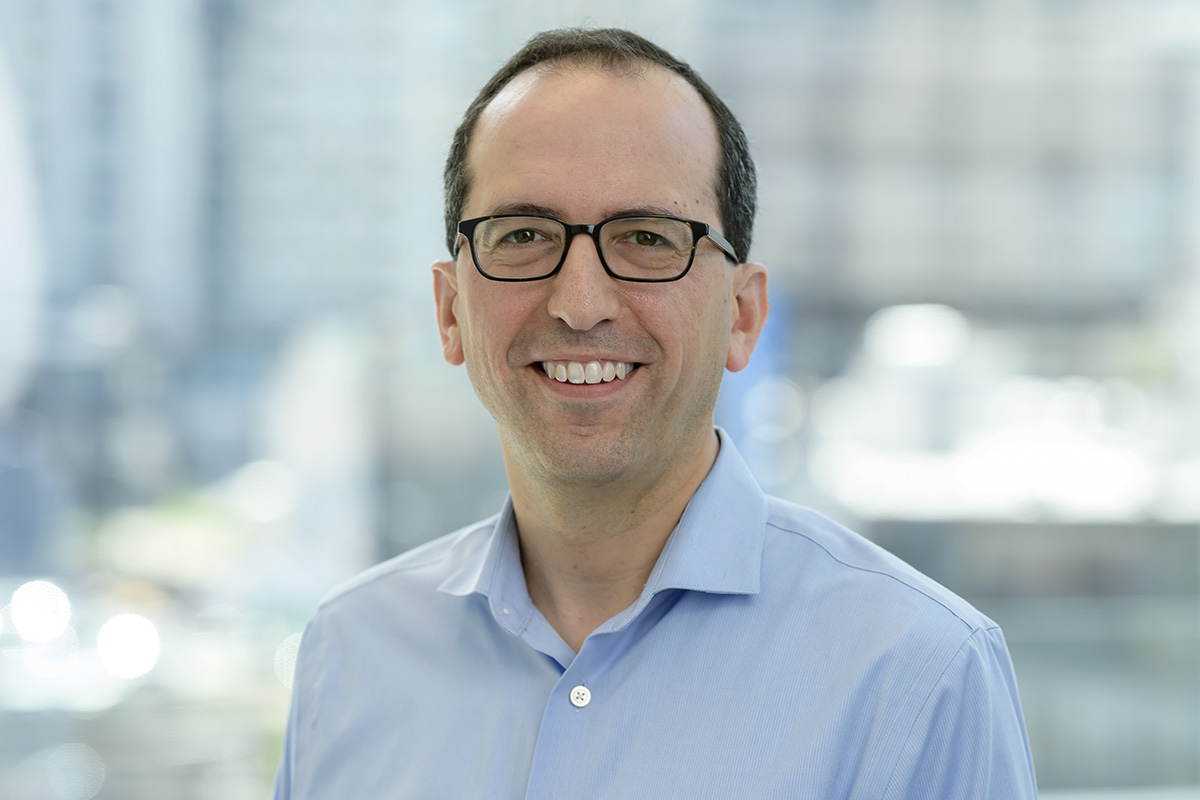
Research
The identification of molecular drivers of cancer and the development of targeted therapies for these drivers offer hope for better outcomes for patients with cancer. Global efforts to comprehensively characterize the genomes of all major cancer types continue to reveal new genetic alterations with implications for tumor biology, prognosis, and treatment. To this end, we developed and optimized a clinical next-generation sequencing assay (MSK-IMPACT) and accompanying analytical framework to identify targetable genomic alterations and guide therapeutic decisions and helped lead its clinical implementation and validation for use in real-time patient management. Since 2014, MSK-IMPACT has been used to profile tumors and guide treatment decisions for more than 85,000 patients at MSKCC and was the first test of its kind to be authorized for clinical use by the US Food & Drug Administration. To complement the information from MSK-IMPACT, we developed and launched a ‘liquid biopsy’ test called MSK-ACCESS for non-invasive detection of tumor mutations in blood plasma, which we have also run clinically for more than 10,000 samples since its clinical approval in 2019. We are also leveraging the large volume of population-scale clinical genomic data produced through MSK-IMPACT, MSK-ACCESS, and other diagnostic platforms to derive novel biological and clinical insights. Given this rich and vast set of genomic alterations, mutational signatures, zygosity, and clonality, we are updating and expanding the genomic characterization of common and rare cancer types and sub-types. By integrating data from tumor and matched normal sequencing, we are exploring the role of inherited variants and genetic ancestry in somatic processes and tumor progression. Additionally, with collaborators in the Center for Hematological Malignancies, we are characterizing the frequency of clonal hematopoiesis in cancer patients; the inherited, environmental, and treatment-associated factors that contribute to its emergence; its associated risks for secondary malignancies; and its effect on treatment response and outcome.
Current Projects:
- Interplay between germline and somatic processes in cancer
- Genome-directed diagnosis of cancer tissue of origin
- Oncogene mutant dosage as a prognostic and predictive biomarker
- Quantifying clinical benefit to cancer therapy via cell-free DNA profiling
Bio
Michael Berger, PhD, holds the Elizabeth and Felix Rohatyn Chair and is Co-Director of the Marie-Josée and Henry R. Kravis Center for Molecular Oncology at Memorial Sloan Kettering Cancer Center. He is also the inaugural Chief of the Clinical Computational Diagnostics Service in the MSK Department of Pathology & Laboratory Medicine. His laboratory has developed experimental and computational methods to characterize the genetic makeup of individual cancers, including MSK-IMPACT, a comprehensive FDA-authorized tumor sequencing panel that been used to profile more than 100,000 tumors from patients treated at MSK. The resulting data have enabled the characterization of somatic and germline biomarkers across all cancer types and the identification of mutations associated with clonal hematopoiesis. Dr. Berger also led the development of a clinically validated plasma cell-free DNA assay, MSK-ACCESS, which his laboratory is using to explore tumor evolution, acquired drug resistance, and occult metastatic disease. He received his Bachelor’s Degree in Physics from Princeton University and his Ph.D. in Biophysics from Harvard University.
Selected Publications:
